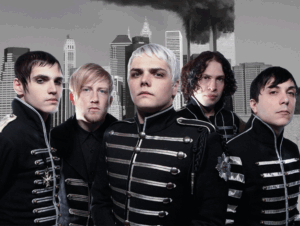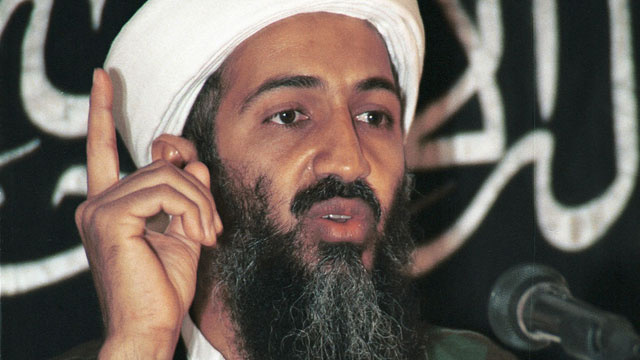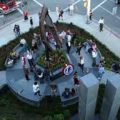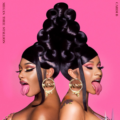
Artistically inspired by the terrorist attack at the World Trade Center on September 11, 2001, My Chemical Romance united under the revolutionary passion to pursue music and uplift others.
What 9/11 is and how many people’s lives were affected across the nation by international terrorism. The 9/11 Investigation references a devastating total of “2,976” individuals who were brutally murdered by the suicide bombing of “three men trained by al Qaeda”.
Just as the crime was committed with explosive passion, so was the famous My Chemical Romance band after the attack on the World Trade Center. Gerard Way was just a young man approaching life for the first time when the attack happened. Not only did it leave him shocked and devastated, but it also inspired him to approach this new interpretation of the attack with a different type of force: Musical Ambition. It led him to pursue his passion in music, which he had always kept as a side-hobby. His main focus was being a comic book illustrator, but he was derailed into becoming America’s most recognizable pop-punk band. The historical event not only fed the hysteria that people were emotionally tied to about terrorism and warfare, but it also fed into the pursuit to actively transform society into one with greater unity and to uplift one another.
9/11, although it’s a horrifying crime itself, can be seen as persecution of passion and calculated terrorism by the terrorist authorities, whose objective is to radicalize vulnerable and impressionable men who are filled with vengeance and hatred for minorities. They commit these acts of hatred for a single purpose: getting back at a society that has failed them. On the other hand, lead singer Gerard Way from My Chemical Romance, believed that pursuing this music was a way to not only connect with people across the nation who had undergone similar tragic events but also to further encourage the younger generation who had also faced these “dark matters” to be uplifted by setbacks, he says in an interview with NME. Their art revolutionized many people’s lives and transformed their setbacks into steps forward for individuals to come together as a community, all sharing the same fears.
He mentioned in an NME interview that he was motivated by the aftermath of 9/11 and the “interpretation” it had on multiple people’s lives. He goes on to talk about how people, especially in New York, were making “…All types of crazy decisions-” to ease the harsh reality that set in after 9/11. Immediately affected by the events and the now frightened society around him, he “wants to do something with substance” to help revolutionize the world. He pursued this goal with his (now famous) band because tomorrow was never promised, and he constantly feared living with the regret of not starting a band.
By passion and revolution, the two come together as a juxtaposing force of wanting change, but with different ideologies. It’s hard to say that the butterfly effect of 9/11 and the change in pop-punk aren’t tied together. The major impact of the attack on September 11 at the World Trade Center left a permanent scar and an even more solid revolution towards solidarity after it.






